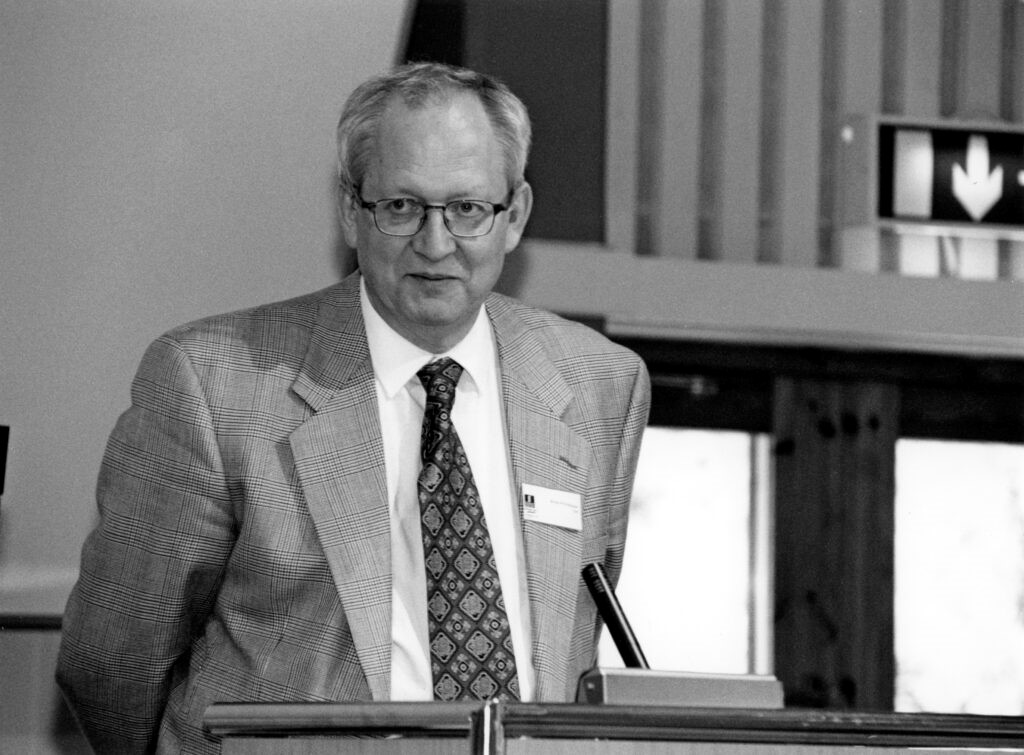Publicerad den 13 maj 2024 av Leif Jacobsson Översättning till engelska: Andreas Lindahl
Arne H. Eriksson was a director of TAM-Arkiv who had a solid background in the white-collar movement. He also conducted valuable research on the history of the white-collar movement and officials/civil servants alongside.

Arne H. Eriksson took over as head of TAM-Arkiv in 1995. At that time, he had a solid background as ombudsman in first of all the Swedish Civil Servants’ Union and then ST’s local branch in Malmö. In the 1980s, he had also worked at the Research Institute of Working Life. Arne H. Eriksson was passionate about democratic ideals and within the framework of the Research Institute for Working Life he pursued issues of co-determination and influence.
Under Arne’s leadership, TAM-Arkiv developed on all so many levels. A lasting contribution was that he seriously opened the door for the Saco unions. Under his leadership, they were able to become members of TAM on a broader basis. In the 1990s, they had no significant archive activities. And definitely nothing that could compare to the Labour Movement’s Archive and Library (ARAB) or the White-Collar Movement’s Archive and Museum (TAM). Since Saco had a low profile on the archive issue at the time, the organization could have difficulty preserving, providing, caring for and making its archives accessible, which was detrimental to research. Arne was thus the one who remedied the situation when he broadened TAM-Arkiv’s activities. On behalf of the Board, he amended the institution’s statutes. At the 2000 meeting, TAM-Arkiv decided on the important changes.
He also worked very actively to promote research. Among other things, he developed essay topics and acted as supervisor for several students in history. He also initiated the journal TAM-Revy (later the journal Nio-Fem) and a series of publications on civil servants and officials in history. It is a series of publications published by the TAM-Archives Research Council and it is still published.
Another contribution that Arne made was that he was a driving force in the development of digital search tools in the archive business, including the image database Pictor.
During his time at TAM, he was also a doctoral student in history at Stockholm University. Arne’s interest was civil servant history. He did not have time to complete his dissertation before he died in 2004, but TAM-Arkiv has – posthumously – published his surviving writings. The book was named ”Tjänstemannafrågan: Social formering, politik och organisering under 1900-talets början” (Eng. ”The issue of salaried employees. Social formation, politics and organization in the early years of the the 20th century”). In it, he highlights, among other things, the German-Jewish white-collar researcher Fritz Croner who fled to Sweden after the Nazis took power in Germany. The posthumous publication was published by Helena Bergman and Lars-Erik Hansen.
At the end of the book, Lars-Erik, the current director of the TAM Archives, wrote a personal eulogy in which he, among other things, highlights Arne’s interest in culture – in music and fiction – and testifies to a man with a humanistic view of humanity and a belief in democratic values.
